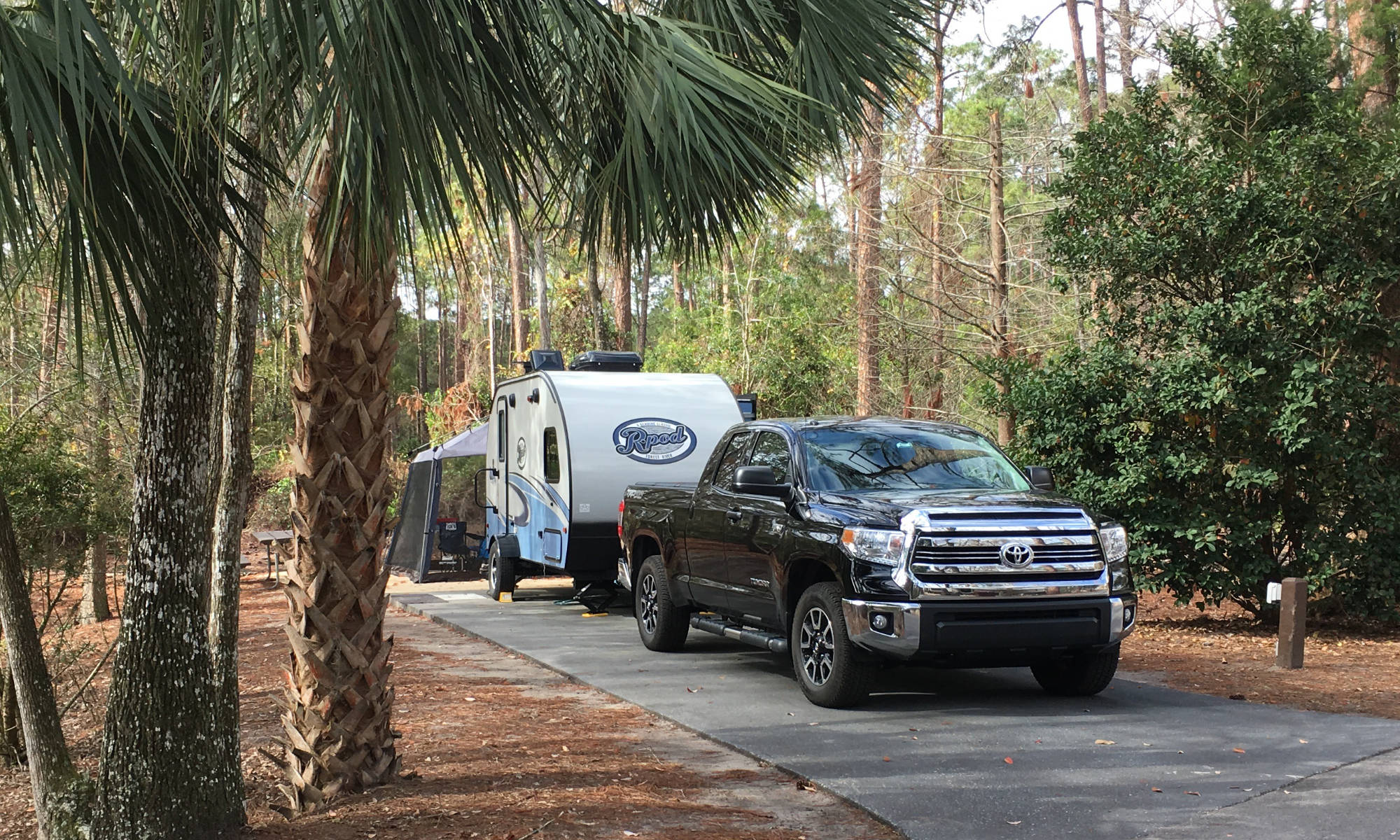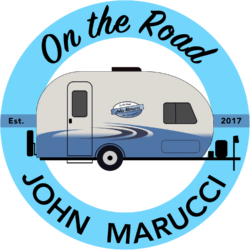In this blog, we’ll cover road trip planning with an RV in the winter. I’ve been towing a travel trailer during winter months for many years, and I’ll share a way that I use to try and avoid bad weather on a multi-day trip.
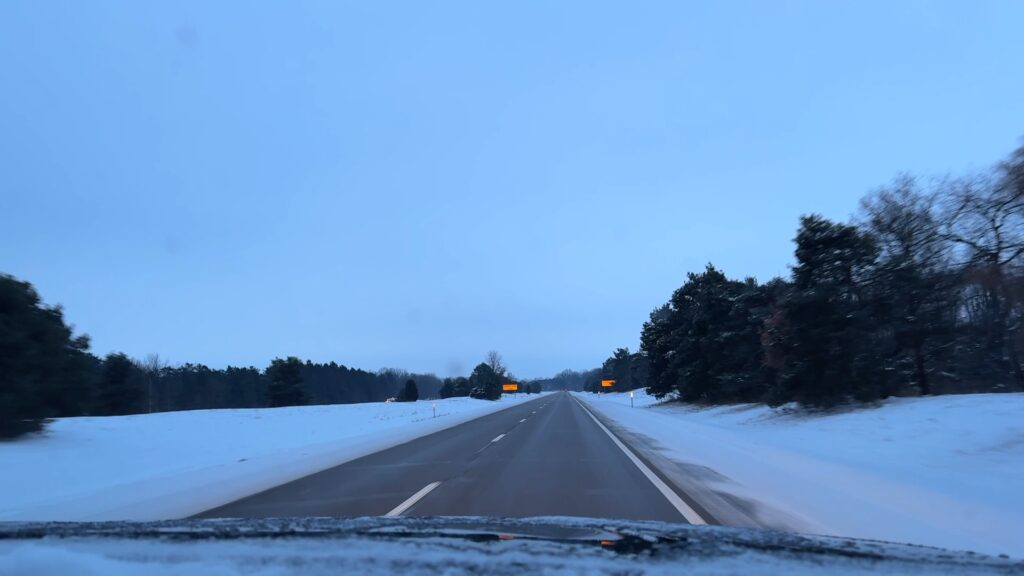
Several times, I’ve gotten to head south with my travel trailer in the winter. One of the issues I try to avoid is bad weather, which can easily translate into bad roads and a much more stressful road trip experience.
Let’s take a look at what I mean and try to plan a trip south from Michigan to Florida in January. This is admittedly a weather crap shoot. So, how do I mitigate winter travel risk? By planning the best possible weather window in the areas where I’ll be going. This seems like common sense, but it isn’t all that easy to get the information in one place. Yet, there is a way to make the best guess at when to depart.
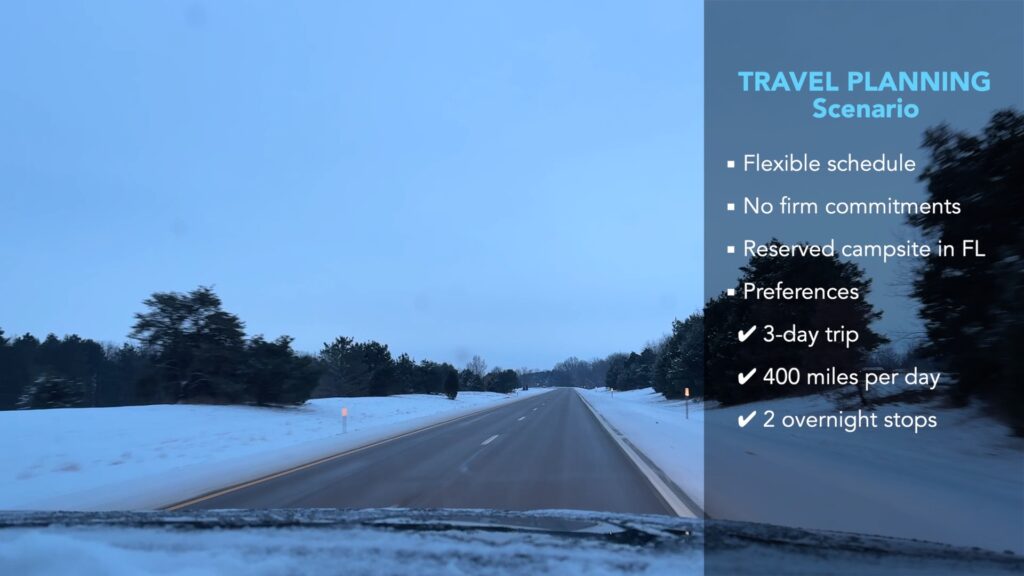
So, let’s look at going to central Florida from West Michigan, about 1,200 miles. In this scenario, we have a somewhat flexible schedule, with no firm work commitments, but a campsite in Florida is reserved for a specific date and we’d like to make that date if possible. My preference is a three-day trip with about 400 miles per day with two overnight stops. We can add another day and night if needed but shortening it to one overnight would mean about 600 miles a day towing, which is way too much daily towing for my liking. Ideally, we’ll start from West Michigan and try to make central Kentucky on the first day, somewhere near Atlanta by the second evening, and central Florida by the third evening. We are winterized, so it would be great to de-winterize one of the evenings, weather depending.
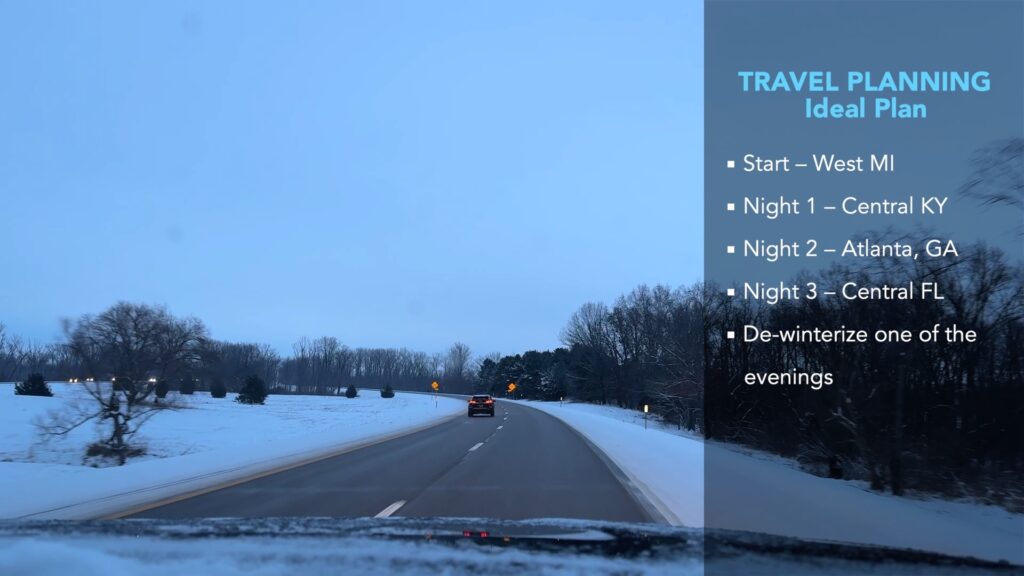
The first step is to map out the weather for the following cities for 3-4 days: Day 1 – Indianapolis, IN; Louisville, KY; Horse Cave, KY. Day 2 – Bowling Green, KY; Nashville, TN; Chattanooga, TN; Atlanta, GA. Day 3 – Macon, GA; Valdosta, GA; Gainesville, FL; Clermont, FL. I use a spreadsheet to map these travel windows.
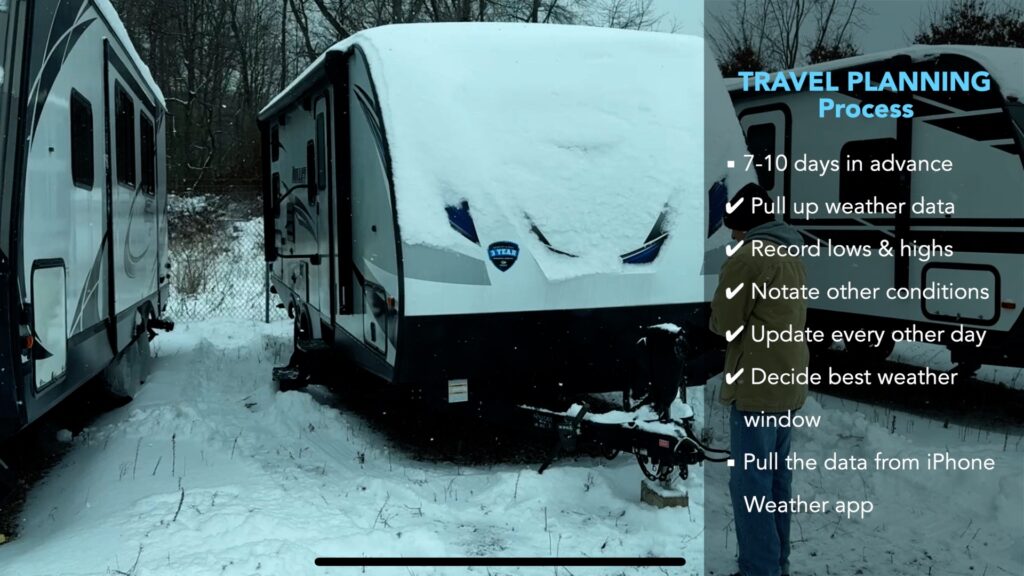
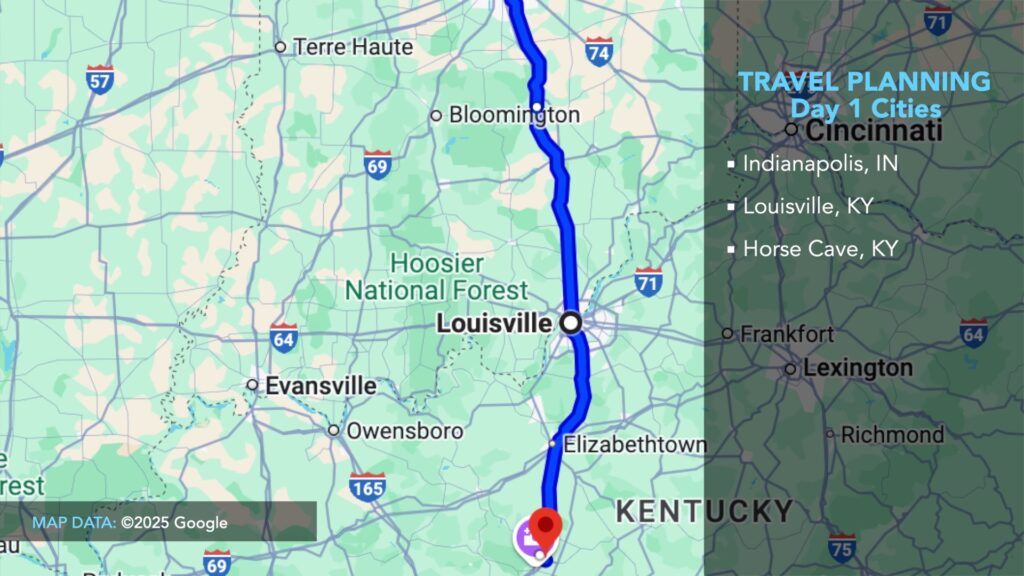
Here’s what I do. About a week to ten days in advance, I pull up each city’s weather, record the low and high temperatures, and notate any other items, like high winds. I’ll update the data every other day until about two to three days before departure and decide on the best weather window. I usually manually pull this data from my iPhone weather app by each city which is time consuming.
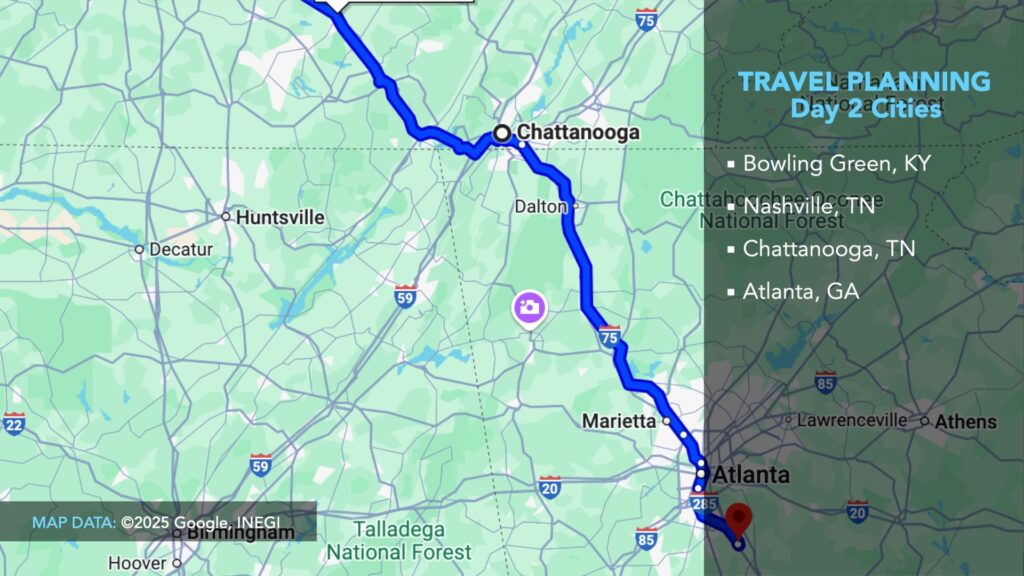
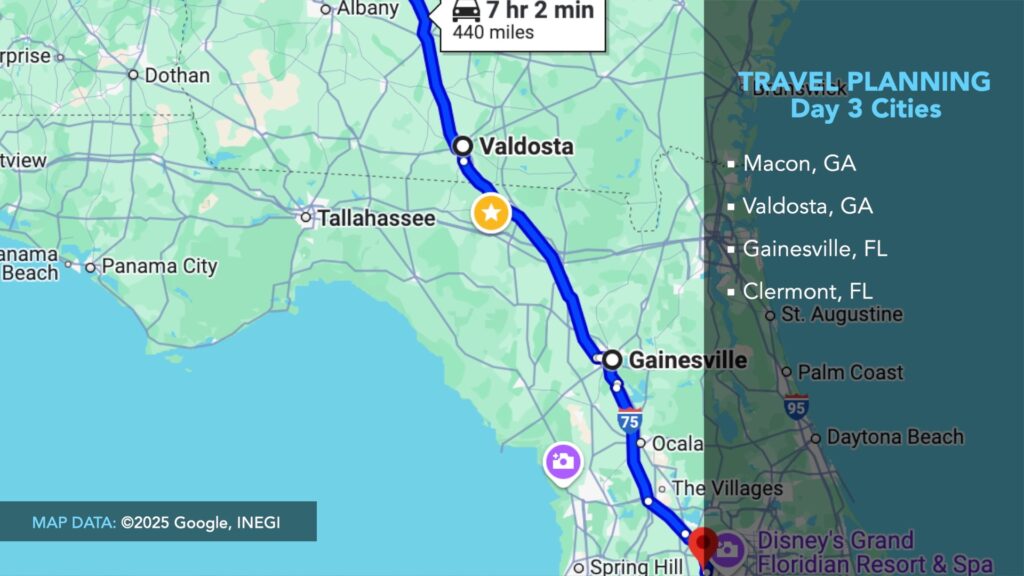
So, let’s examine the options. This is important as it will determine what reservations you make early or on the road.

Here is the data in the spreadsheet. We are assuming a Sunday reservation in Florida we’d like to keep, and we’d like to dewinterize somewhere on the road, so we have use of the RV’s shower, since most campgrounds along the way will be partially shutdown. A few things to point out: Generally, it is much colder and sunnier the earlier you depart. Second, if you leave later, there will be some rain at near-freezing temperatures.
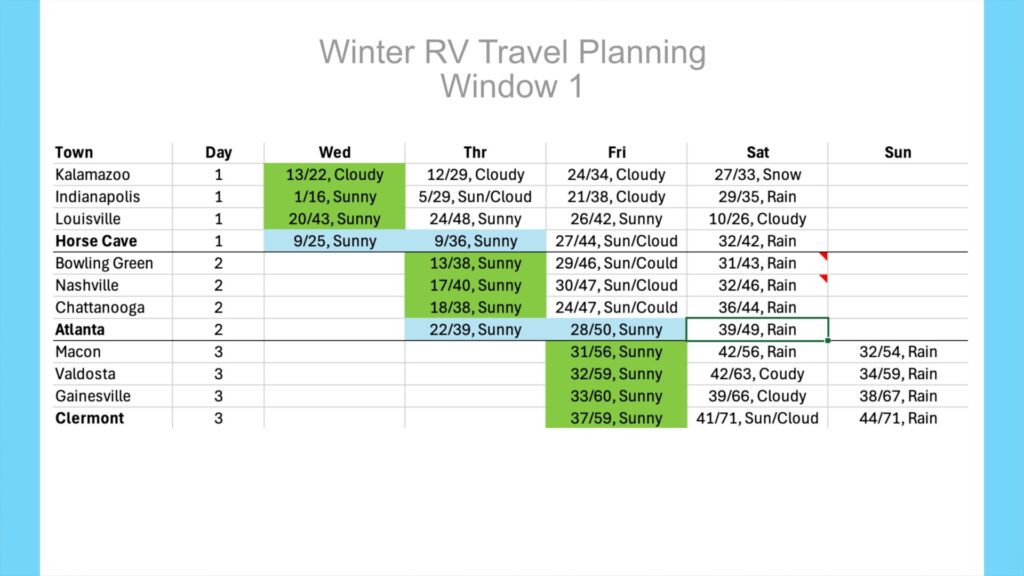
Let’s look at what I’ll call Window 1, leaving on Wednesday. On the plus side, no precipitation is forecasted, and it is very cold and sunny. The likelihood of de-winterizing at one of the two overnight stops is pretty much nil. Notice the overnight temperatures at the stop-overs in blue. Even in Atlanta, Thursday night will be too cold to dewinterize. So, you would head south for three days without any possibility of running water in the RV until you arrive in Florida. Also, the sun is nice, but I’d prefer to have cloud cover while driving long distances. In my experience, you will also burn through a lot of propane overnight at these temperatures. There is also added expense of two additional overnight campsites somewhere before your site reservation opens on Sunday.
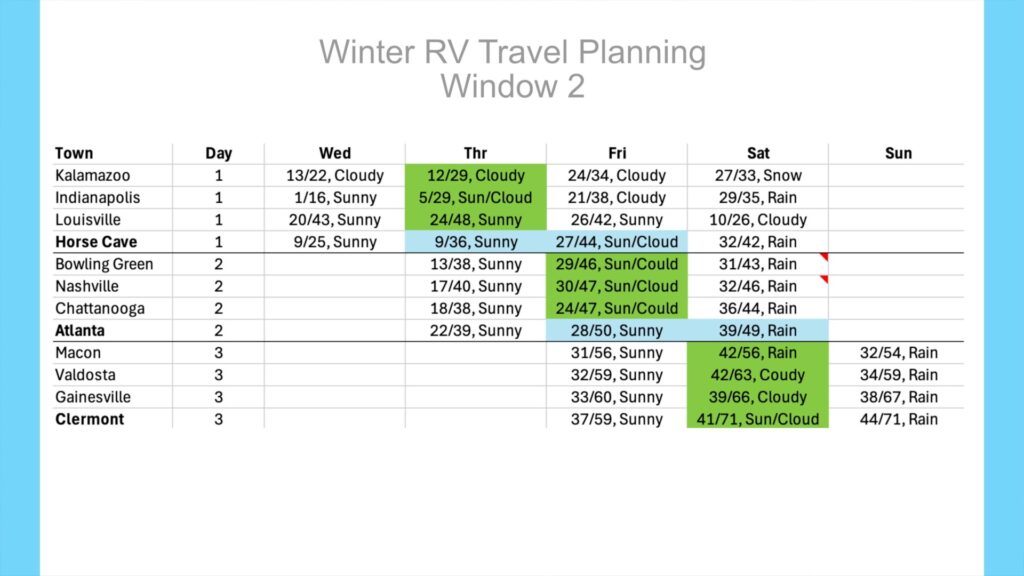
How about Window 2, a Thursday departure? While a bit warmer and less sunny, the first night at Horse Cave KY will still dip below freezing. You could risk it, de-winterize, and keep the furnace turned up, hoping nothing freezes since Friday night in Atlanta is above freezing (if you have an enclosed underbelly on your trailer). It may not be a risk worth taking. Otherwise, it isn’t a bad option, besides being a chilly ride through Indiana and rain the final day of travel. You would need to find an overnight site for Saturday night prior to your reserved spot being open on Sunday, so there is additional expense.
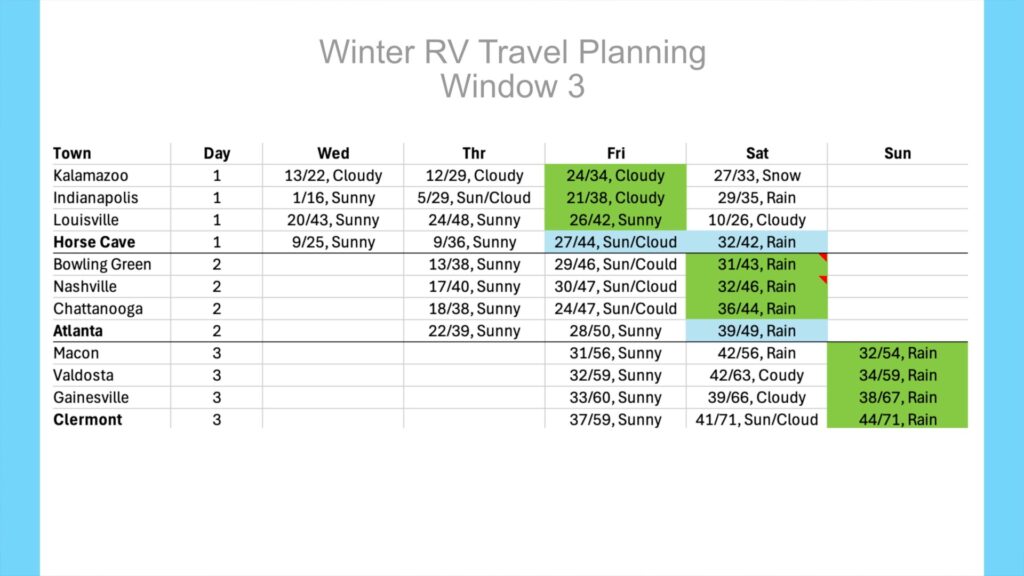
Window 3 is a Friday start. The benefit here is that temperatures are generally warmer, and the first night at Horse Cave, it does stay stays above freezing. The lows in Atlanta on Sunday are not until that evening (note that I check the hourly temps, which are not shown). So, this window is the only one that allows for de-winterization on the first evening. The drawback is the potential rain on Days 2 & 3, especially the lower temperature rains near Bowling Green and Nashville on Saturday morning. One solution would be to travel a bit later in the morning on Day 2, after temps rise above freezing. The other benefit is that you don’t need to spring for an additional night on the road as you arrive the day your reservation is open. The thing I don’t like about Window 3 is that you will need to hit your 400 miles each day to arrive on time. If weather conditions change, you haven’t left any buffer. It does add a bit of stress to the travel if you are set on making the Sunday reservation.
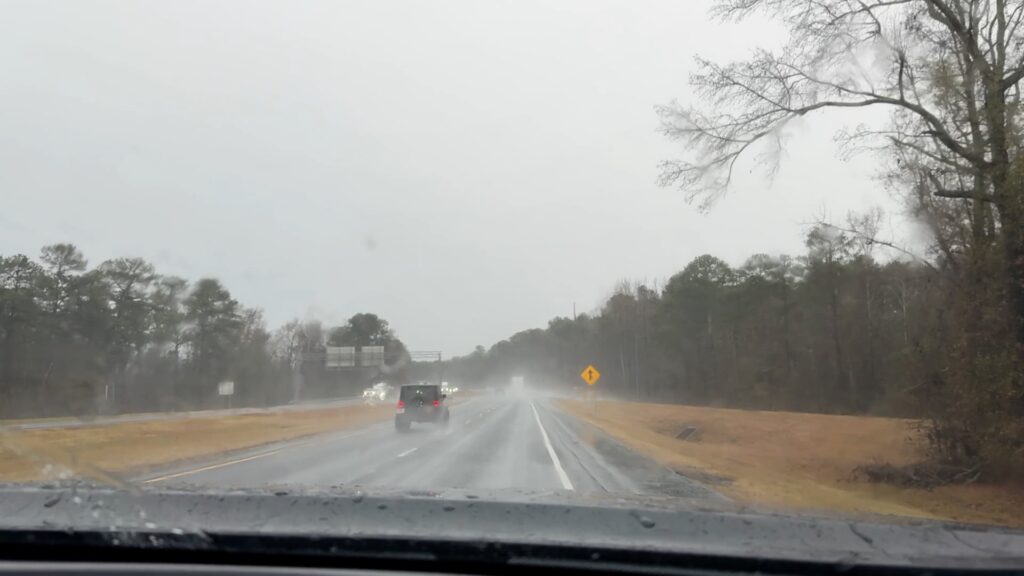
So, what would you do if you had firm pre-paid reservations starting Sunday? There are fundamental tradeoffs and potential added expenses to consider. Would you go earlier, not de-winterize, but endure colder conditions and drive in the full sun? Would you delay your departure to Thursday and de-winterize the second night but have to find a campsite for Saturday night at added expense? Or would you leave Friday, de-winterize the first night, save the extra overnight expense, and drive through rain on Day 2 & 3 on your way south trying to hit the 400 miles per day? I am curious on how you would tackle this winter travel scenario. Please leave a comment below the video.
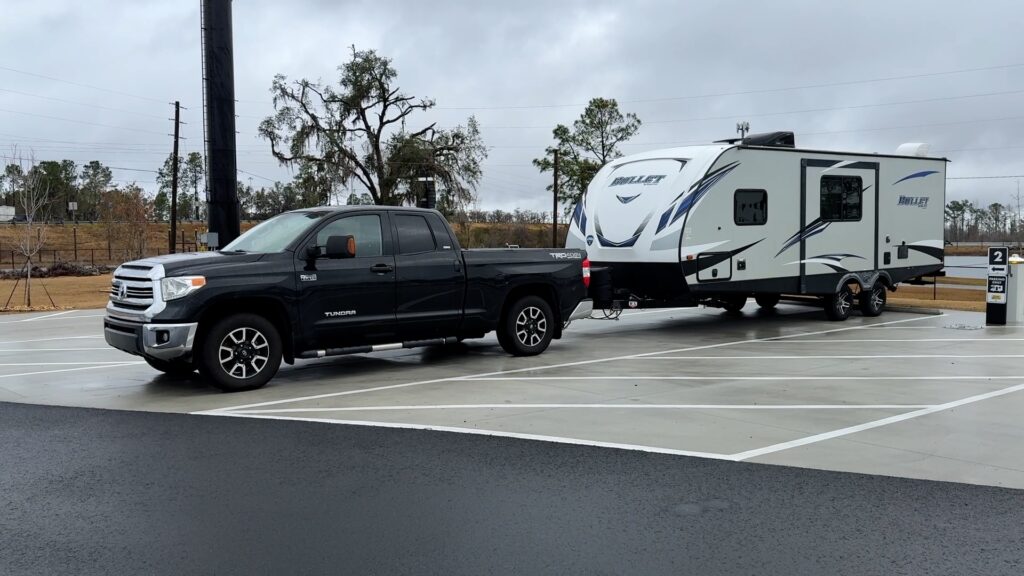
My hope in this video was to share the way I look at winter travel planning when towing an RV and highlight some of the risks when planning. You can get into trouble pretty easily with winter road travel and this way to plan does not mitigate that risk. The weather can change quickly, or your weather app can be wrong, and no amount of planning can account for this. My method has tended to work well for me for a while and I hope that you can adopt that which may be helpful. It does take a bit of work.
That should do it. All the best in your camping adventures!
As always, thanks to our fans who support our efforts by starting their shopping from our Amazon Storefront and their generous financial support by using the THANKS feature located under each YouTube video ($ within the Heart icon). Your support is greatly appreciated!
